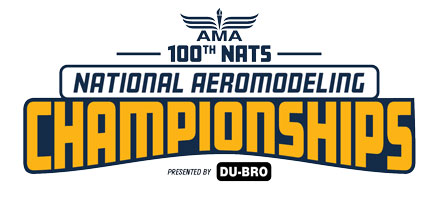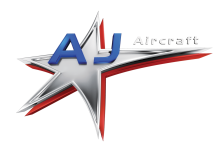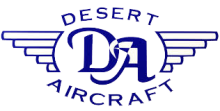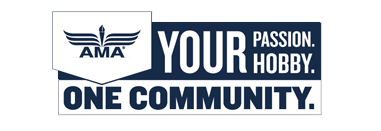
By Matt Neumann (mrstuka@cinergymetro.net)
Saturday the fliers woke up to hazy skies and light wind. It was a welcome change from the day before.
Official flights didn’t start until 8 a.m., but contestants could put in a practice flight or two from 7 a.m. to 8 a.m. if they wished. Derek Barry was one of those fliers. Unfortunately, we got a little more excitement in the morning than what we wanted. After Derek started his engine, he went around the propeller and reached under the engine to take off the battery that is used to heat the glow plug for starting. In doing so in a normally safe way, he still managed to get the top part of his forearm in the propeller. This was not a slice and dice moment. It took a chunk of skin off that was about the size of a quarter. I did not get a picture of that and if I did, I would not share it here. But I did see a picture and let me just say that if you saw it before lunch, you would lose your appetite. Not pretty.
He had put on a gauze bandage twice, but it was still getting blood soaked. Fortunately, one of the judges knows first aid and properly bandaged up the wound. We were joking about two phrases that come to mind, “that is going to leave a mark” and “you will feel that in the morning.” All jokes aside, remember that safety is priority one. Always be aware of spinning propellers. In a battle between you and the propeller, the propeller always wins.
Saturday’s flying consisted of each pilot flying three flights. The best two were added together to get the final score.
Derek’s bad luck continued during his first flight. The wind was light as he started and blowing in one direction. We could see in the distance a long band of very dark clouds, but considering that the wind was blowing into them, we thought they would blow away from us. We were wrong. As Derek’s flight progressed, the line of clouds blew right over us and changed the wind direction 180°. That means the judges had to hightail it to the other side.
Now, you might wonder what difference it makes. Well, our planes are tethered. That means we have two thin stainless-steel cables attached to our planes at one end and the other is attached to a handle. When we move the handle, we pull on one line or the other, causing the plane to turn up or down. The plane has a pull-pull system to the plane and a push-pull inside of the plane. Because it is pull-pull outside, there has to be tension on those cables, or you lose control of the planes. Not good. So that is why placement in the wind is critical. We need the wind to blow the plane away from us to keep tension and control. If the lines go slack because the wind blew it into us, we lose control, and oops.
Not only did Derek have to move everything around, but the wind also picked up considerably. From a light breeze to why am I doing this? He made it through the pattern quite well, showing off his skill as a pilot and being able to fly in the mess.
As things would go, it calmed down after his flight. Yup, he had bad luck.
As you may recall, I told you about Paul Walker’s electrical issue during Wednesday’s qualifying and his mechanical issue during Thursday’s flying. Fortunately, he did not have any issues on a day that does not have a throw away (Friday). However, Saturday you do, and he had another issue and that was a mental issue.
We are scored on 15 different maneuvers. Whoever does them consistently the best, wins. The thing is, we are supposed to do them in the same order all of the time. This way, you don’t confuse the judges. Well, Paul lost track of things and went straight from the wingover to the inside square loops—skipping inside and outside round loops, as well as the inverted flight. We get 25 pattern points if we do everything in order, but since he didn’t, he automatically lost those 25 points. And at this stage, you might as well pack up and go home. So, after catching himself, he decided to just fly out the flight level and come back with his next two flights, which had to count. My hat is off to Paul. He had some really bad luck this week, yet he kept his composure and soldered on to eventually come out third. Not getting rattled is no small feat.
This year we had four Junior contestants and two Senior contestants, which when compared to previous years, is a good turnout. The Junior contestants are kids under 14, while the Senior contestants are kids ages 14 through 18. Both still do the same thing as the Open contestants.
Sam Londke, a Junior, stole the show—not with his flying, but with his attitude. Sam broke both of his airplanes. After the first one, he gave his dad a high five for it being a “spectacular” crash. He is used to crashing and having to fix his planes, so they brought out the backup. During this flight, he had his lines catch together, causing another crash. This time was really spectacular. It went straight onto asphalt under full power. It made a really loud smack on the pavement. He then gave his dad another high five and then looked at the wreckage. He proclaimed, “I even broke the engine! I never did that before!” Did the kid cry? No. He took everything in stride—a testament to the rest of us. Don’t let things get you down.
Friday, I mentioned that Saturday would be a shootout. I was not disappointed. When the dust settled, David Fitzgerald won his 12th Nats. Orestes Hernandez was 2nd, Paul Walker 3rd, Chris Rud 4th, and Derek Barry was 5th. There was less than 2 points separating David and Orestes out of 1,150 total points. Eight points separated 2nd and 3rd, 4 points between 3rd and 4th, and less than 5 between 4th and 5th places. This is really close if you consider how many points overall are given. We did not know who was in what position until all of the scores were up. There was a lot of nail biting between David and Orestes. They probably don’t have to worry about trimming their nails for a while.
As mentioned, this was David’s 12th win. Only one other person has won the Nats this many times. That is Paul Walker. They are chief rivals, yet great friends. This is the way it should be.
As for me, I learned a lot and will take that knowledge back with me to improve my program and to begin to prepare for next year. That is also one of the advantages of coming to the Nats. You always learn something to try and help better yourself. No other place has this much knowledge so readily available. It is worth the trip just to soak in the knowledge, and competition is just icing on the cake. If you have a chance to come to the Nats next year, please do. You won’t be disappointed.
 Derek gets first aid from Joe Daly Jr to fix his Boo Boo. Read text for description. And remember, SAFETY FIRST!
Derek gets first aid from Joe Daly Jr to fix his Boo Boo. Read text for description. And remember, SAFETY FIRST!
 Derek Barry starts his engine while Chris Rud launches for his first official. You can see the clouds that were about to move across during his flight that would give him a lot of grief.
Derek Barry starts his engine while Chris Rud launches for his first official. You can see the clouds that were about to move across during his flight that would give him a lot of grief.
 There is almost a quarter century of Nats wins between these two. Both 12-time champions. David Fitzgerald (L) and Paul Walker (R).
There is almost a quarter century of Nats wins between these two. Both 12-time champions. David Fitzgerald (L) and Paul Walker (R).
 The two most responsible people for running this year's Nats: Mark Weis (L) and Derek Barry (R). Thanks guys! You did a great job.
The two most responsible people for running this year's Nats: Mark Weis (L) and Derek Barry (R). Thanks guys! You did a great job.
 Sam Londke showing us what happens when a plane goes straigt in under full power into asphalt. Notice the cylinder and piston in front of his knees.
Sam Londke showing us what happens when a plane goes straigt in under full power into asphalt. Notice the cylinder and piston in front of his knees.



























